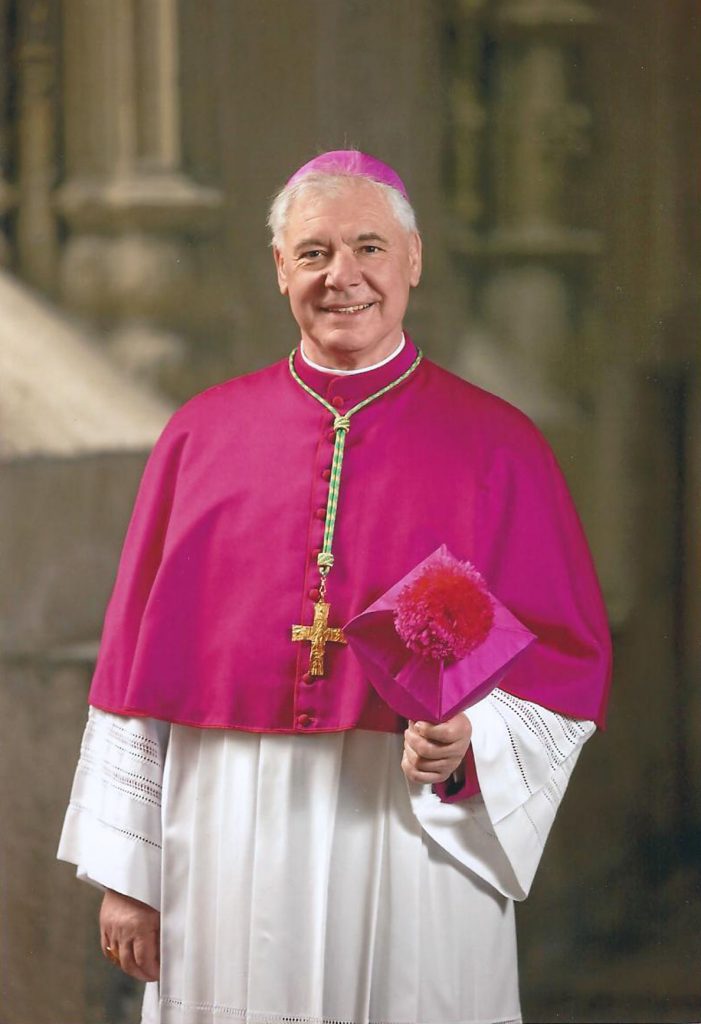In a recent interview with Corriere della Sera, the Vatican's head official on doctrinal matters discussed the importance of personal pastoral care for divorced re-married persons, while adhering to Church teaching.
“We must try a combination of general principles and particular, personal situations. Finding solutions to individual problems, though always on the foundation of Catholic doctrine,” Archbishop Gerhard Müller, prefect of the Congregation for the Doctrine of the Faith, told Gian Guido Vecchi of the Italian daily in an interview published Dec. 22.
“You cannot adjust the doctrine to the circumstances: the Church is not a political party which does surveys to look for consent. A true, pastoral dialogue is necessary. There are different situations, which are to be evaluated in different ways.”
The archbishop's comments follow months of back-and-forth between himself and bishops from his native Germany who have suggested that divorced and remarried Catholics could receive Communion under certain circumstances.
In November, Archbishop Müller wrote a letter to the emeritus archbishop of Freiburg clarifying that “no pastoral directions are sanctioned which are in opposition to Church teaching,” and he had made the same point in an essay published at L'Osservatore Romano the preceding month.
In his Corriere della Sera interview, the archbishop explained, “the truth is that we cannot clarify these situations with a general statement. On those divorced and civilly remarried, many think the Pope or a synod can say: of course, receive Communion. But this is not possible.”
He added that this is because a “valid, sacramental marriage is indissoluble: this is the Catholic practice, reaffirmed by Popes and Councils, in fidelity to the Words of Jesus. And the Church has not the authority to relativize the Words and Commandments of God.”
Archbishop Müller added that while the sacraments have a “medicinal aspect” and are not restricted to “the perfect,” an irregular marriage is an “objective obstacle to receiving the Eucharist.” This is “not a punishment” and the bar on divorced and re-married persons receiving Communion does not keep them from attending Mass.
He affirmed that annulments can be granted, adding that in many places, Christian tradition “has lost its meaning” and there is a “total confusion” about who man is and what is his purpose and dignity.
The archbishop also discussed Church structures in the wake of Pope Francis' Nov. 24 apostolic exhortation “Evangelii gaudium”, in which he discussed a “conversion of the papacy” and suggested that bishops' conferences could be given a greater role, including “genuine doctrinal authority.”
He said the interpretation of “some” who believe the exhortation means the Pope “wishes to promote a certain autonomy of local Churches, a tendency to distance themselves from Rome” “is not possible” and would be “the first step towards autocephaly.”
Archbishop Müller clarified that “the Catholic Church is composed of local Churches, but it is One. 'National' churches do not exist … the presidents of bishops' conferences, while important, are coordinators, nothing more, not vice-popes!”
He emphasized that both the Roman Pontiff and individual bishops are of “divine right, instituted by Jesus Christ,” while patriarchates and bishops' conferences are established by the Church, by man.”
“Each bishop has a direct and immediate relationship with the Pope. We cannot have a decentralization in the conferences, as there would be the peril of a new centralism: in which the president has all the information and the bishops are submerged in documents.”
The archbishop added that Pope Francis' statements in “Evangelii gaudium” were in the context of Bl. John Paul II's encyclical on ecumenism, and that the Church must find a “practical equilibrium” between the errors of conciliarism or Gallicanism on the one hand, and a certain curialism on the other.
Corriere della Sera also asked about Pope Francis' Sept. 11 meeting with Father Gustavo Gutierrez, the “founder” of liberation theology, whom the doctrine head said “has always been orthodox.”
Archbishop Müller and Father Gutierrez are friends, and in conclusion he said he had learned from Father Gutierrez “to broaden the horizons, to find an equilibrium,” and “to open up to a concrete experience: to see poverty and also the joy of the people.”
---Catholic News Agency

